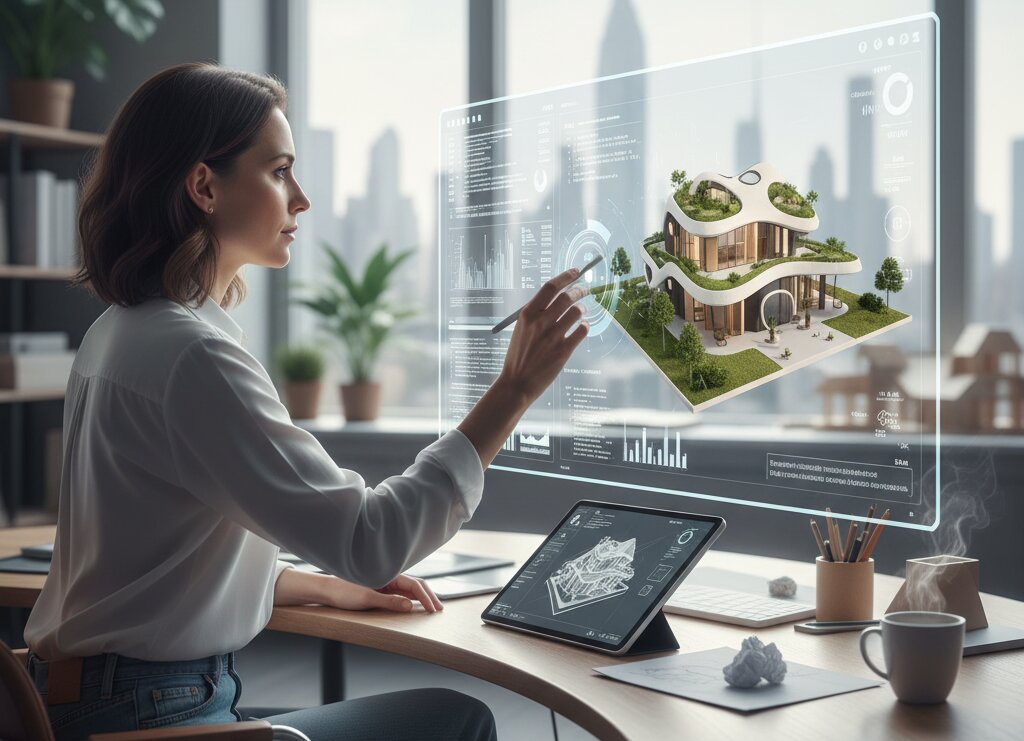The Royal Institute of British Architects (RIBA) has released new research mapping out how artificial intelligence (AI) could reshape the profession over the next decade and why soft skills may prove just as valuable as digital tools.
The latest paper in RIBA’s Future Business of Architecture programme finds that 88% of architects believe AI will be increasingly important for their organisation by 2035, more so than traditional business tools such as marketing and project management.
Business development, sustainability consultancy and client asset management were also identified as major growth areas.
When it comes to practice, half of respondents expect AI to have a “transformational effect” at the concept design stage, with a similar proportion predicting the same impact on manufacturing and construction.
UNRELIABLE OUTLIER
By contrast, just 10% think that early project stages such as briefing and spatial coordination will remain largely untouched by automation and digitalisation.
The research, Artificial Intelligence: The unreliable outlier driving the future of architecture, sets out three scenarios – positive, negative and neutral – for the profession as AI adoption accelerates.
It also places AI in the wider context of technological disruption, comparing its impact to earlier shifts brought by CAD and BIM.
DAY-TO-DAY PRACTICE

Helen Castle, RIBA’s Director of Publishing and Learning Content and co-author of the report, says: “It was fascinating to capture members’ views about AI and technology, how it’s influencing their day-to-day practice and how they see it evolving and changing the way they work in the future.
“The most interesting take away from the qualitative research was that, although architects feel that AI will become increasingly more important by 2035, they don’t believe that it will lead to a demise in the demand for soft skills and business development.
“Quite the reverse in fact, the ascendance of AI will lead to human relationships, communication skills, ethical decision-making and critical thinking taking on even greater significance for the future business of architecture.”
ENHANCED VALUE

RIBA President Chris Williamson adds: “Like many in our profession, I suspect, I feel a mixture of excitement and trepidation about AI and its potential to radically change the business of architecture.
“I felt very much the same way when Building Information Modelling (BIM) and Computer-Aided Design (CAD) first started making an impact on the industry.
“Both tools seemed equally radical at the time but instead of diminishing architects’ role and value, they enhanced it.
“We need to consider the capabilities of AI seriously and be prepared to embrace the immense possibilities.
“I’m equally convinced that the research led insights and scenarios in this white paper are vital because they provide architects with the tools to harness AI in whatever form it may take in the next decade.”










